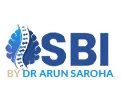What Is the Average Recovery Time for Disc Replacement Surgery?
The average recovery time for disc replacement surgery typically ranges from 3-6 months. Most patients can resume light activities within 3-6 weeks, while full recovery may take several months depending on the type of surgery, overall health, and post-operative care. Physical therapy and adherence to recovery guidelines are crucial for ensuring successful rehabilitation.












